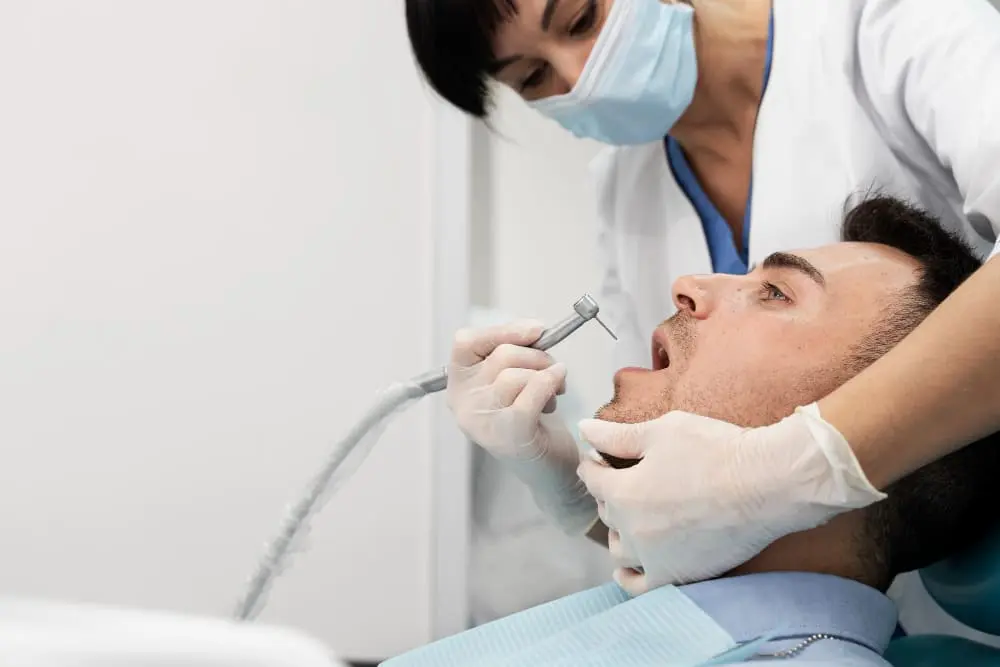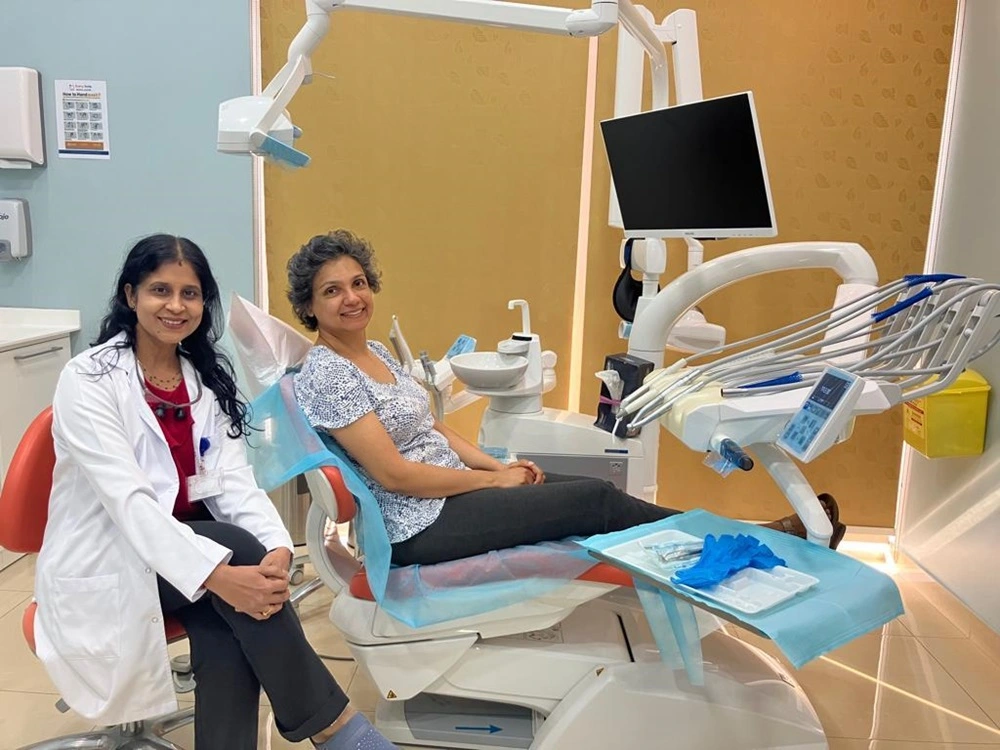

A dental abscess is a serious condition that can cause significant pain and discomfort. It is essential for efficient management and recovery to comprehend the symptoms, underlying causes, and available treatments. This article explores each aspect of dental abscesses in detail, offering clear and practical information.
A localized infection in or around a tooth is called a dental abscess. It forms a pocket of pus, usually due to bacterial infection. Abscesses can occur in different parts of the tooth, including the pulp (inside the tooth), the root, or the gums. They can lead to severe pain and swelling, making early treatment essential.
You will be interested on: Dental Abscess drainage procedure in Dubai
Recognizing the symptoms of a dental abscess is the first step toward treatment. Common symptoms include:
Pain can be persistent, throbbing, or sharp, often worsening when lying down.
Swelling of the gums, face, or jaw can occur. In severe cases, it may affect the eye or neck.
The afflicted area could feel heated to the touch and look red.
An abscess can cause a fever as the body tries to fight the infection.
This occurs due to pus draining from the abscess.
Severe cases may cause issues with swallowing or breathing, indicating a need for immediate medical attention.
You will be interested on: Tooth Stain Removal in Dubai
Several factors can lead to a dental abscess. Recognizing these factors can aid in treatment and prevention:
Cavities allow bacteria to enter the tooth’s pulp, leading to infection.
Periodontal disease can cause pockets to form between the teeth and gums, where bacteria can thrive.
Injuries to the tooth can lead to infection if the tooth’s protective enamel is compromised.
Poorly done fillings or crowns can leave gaps for bacteria to enter.
A dentist can diagnose a dental abscess through a clinical examination and various diagnostic tools:
The dentist will check for signs of swelling, tenderness, and redness.
These help identify the extent of the infection and any damage to the tooth and surrounding bone.
Tests determine if the tooth’s pulp is alive or dead.
You will be interested on: Root Canal Treatment in Dubai
Treating a dental abscess effectively is crucial to relieve pain and prevent the spread of infection. The main treatment options include:
These are prescribed to combat the infection and reduce swelling. They frequently accompany other forms of treatment.
The abscess may need to be drained to remove pus and relieve pressure. Usually, a little incision is made into the abscess to do this.
If the infection is inside the tooth’s pulp, a root canal may be necessary. This procedure involves removing the infected pulp, cleaning the root canals, and sealing them to prevent future infections.
In some cases, if the tooth is severely damaged, dental extraction may be necessary. This removes the source of infection and prevents it from spreading.
For abscesses related to gum disease, professional cleaning and scaling are performed to remove plaque and tartar from below the gum line.
Over-the-counter pain relievers, such as ibuprofen or acetaminophen, can help manage pain and reduce inflammation.
You will be interested on: Smile Makeover in Dubai
Preventing a dental abscess involves maintaining good oral hygiene and addressing dental issues promptly:
In order to get rid of plaque and stop cavities and gum disease, brush your teeth twice a day and floss every day.
Regular check-ups allow dentist to detect and treat problems early.
Reduce your intake of sugary foods and beverages that contribute to tooth decay.
If you play contact sports, wearing a mouthguard can protect your teeth from trauma.
You will be interested on: Dental Clinic in Dubai
Seek immediate dental care if you experience severe pain, swelling, or difficulty breathing. Delaying treatment can lead to complications, including the spread of infection to other parts of the body.

Dental abscesses are serious conditions that require prompt and effective treatment. By recognizing the symptoms, understanding the causes, and exploring available treatments, you can manage and recover from a dental abscess effectively. Regular dental visits and good oral hygiene are essential to prevent abscesses and maintain overall oral health.